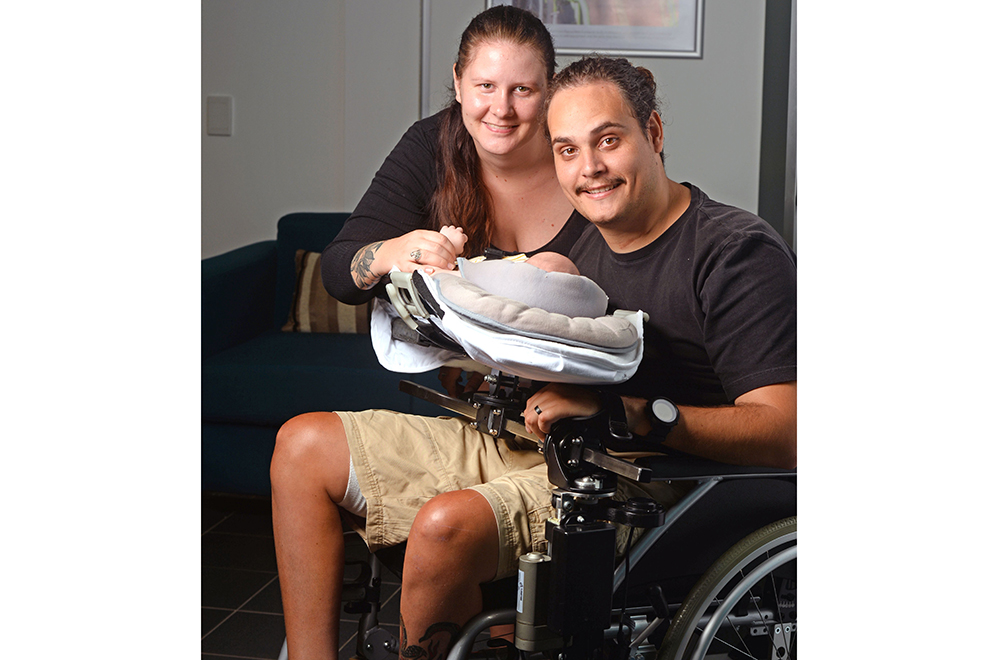A Queensland start-up has invented a ‘world first’ device that has the ability to change the lives of parents using wheelchairs. Called The Care Station, it allows for easy feeding, changing nappies and interaction with babies to be done all from the wheelchair.
One and six children in Australia are estimated to live with a parent with a disability and, until now, many people in wheelchairs have had no easy way to carry out these tasks.
PWA Mobility has changed that, releasing the first prototype of the device and according to spokesman Adrian Burke, the organisation worked closely with disability support agency Spinal Life Australia on the development of The Care Station capsule.
“The baby can be placed in The Care Station so parents can more easily connect with their babies which all help to strengthen the bond between parent and child,” Burke said.
Katie Hammond became a paraplegic after an injury almost 20 years ago and during this time has raised three children. She said she personally experienced the need for a product which facilitated spending quality time with her daughters.
“When I started feeding with a bottle, I would hold a bottle in one hand and baby in the other which meant I didn’t have a free hand to push around my wheelchair or reach out and grab other items to assist me,” Hammond said. “The capsule means that you’re still able to be an active part of your child’s life while maintaining safety for the child and independence for the parent.”
PWA Mobility conducted extensive consultation with parents with a disability throughout The Care Station’s development and testing. “We have not seen another product on the market that supports the connection between parent and young children like this,” Spinal Life Australia executive manager, Ross Duncan said.
“The capsule aligns very closely with our pursuit of helping people with disability live independent, empowered and accessible lives. The wider market for the product also includes aged care facilities, hospitals and nursing homes,” he said.
A Kickstarter campaign is currently underway to raise funds for the manufacture of the device which can be funded through the NDIS.
Image: Lochlan Kennedy who trialled the prototype with his wife Sandra Haaland

